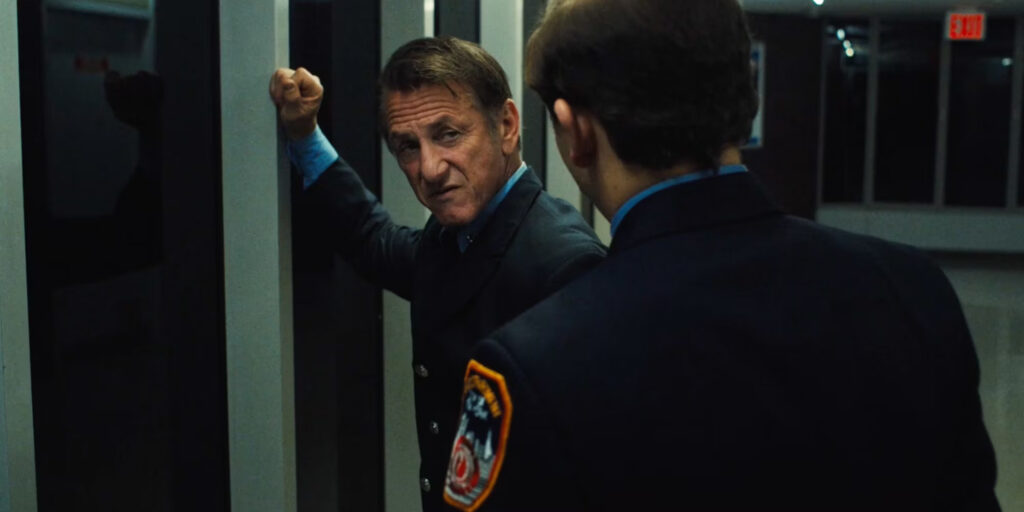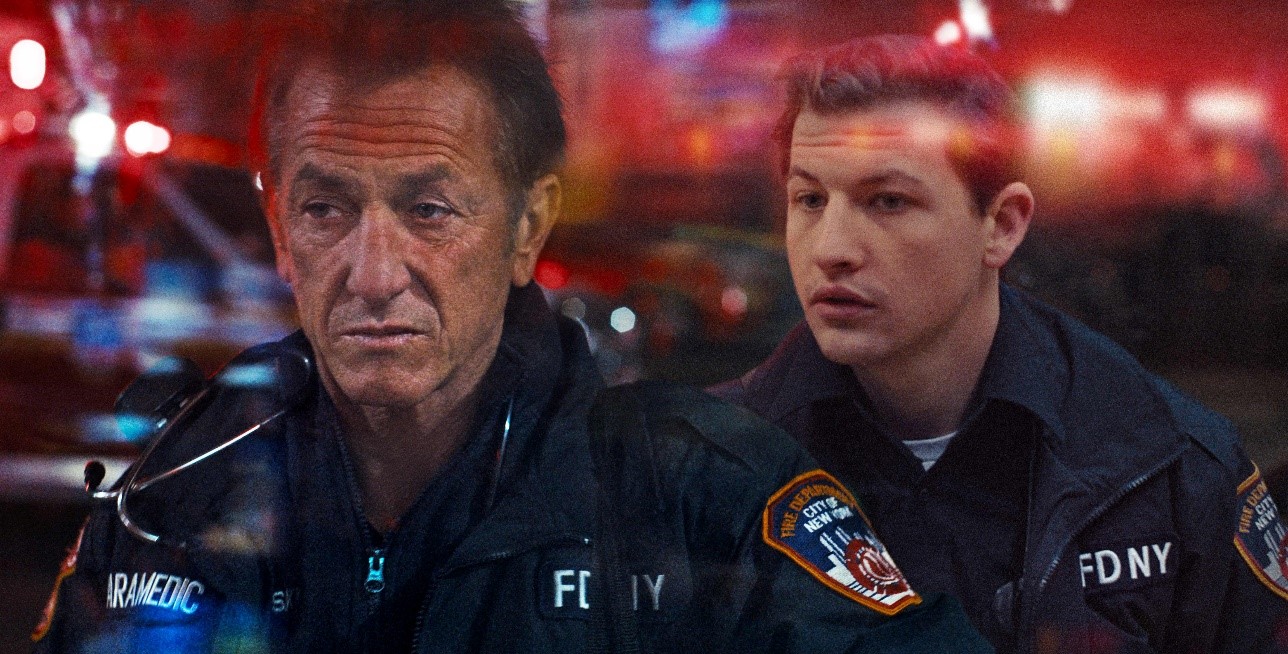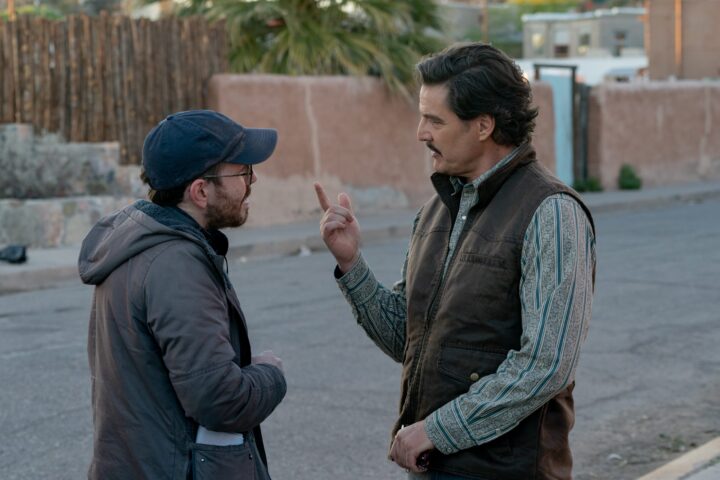As guided tours of hell go, Jean-Stéphane Sauvaire’s searing New York City paramedics drama Asphalt City is too much yet not enough, an overheated descent into a pitch black abyss lacking connective character tissue to be fully compelling, despite convicted performances by stars Tye Sheridan and Sean Penn, who keep the episodically frustrating picture watchable.
In a film recalling Martin Scorsese’s superior 1999 streets of New York drama Bringing Out the Dead, Sheridan stars as an FDNY EMT and resident new kid on the block whose eyes—and ours—are opened as he’s thrust into a cavalcade of life-or-death encounters on the streets of Brooklyn’s Bushwick neighborhood and Manhattan’s lower east side. The job means keeping people alive in the most extreme situations—multiple gunshot wounds, blood loss, addiction, homelessness, crime scenes—and the picture, based on real-life NYC paramedic Shannon Burke’s 2008 novel Black Flies (which, the film tells us, sense death before we do), is disturbingly bleak.
Sheridan’s Ollie Cross, an upstart Colorado transplant, navigates the streets of Chinatown, where he shares a cramped apartment, adorned with an angel-wing embroidered jacket – striking yet obviously symbolic. His aspirations as a future doctor are about to collide with the harsh reality of New York City’s emergency late shift, where his fledgling EMT is paired with the wearily seasoned ambulance driver, Gene Rutkovsky (played by Sean Penn). In the gripping opening sequence, the duo races against time to save a victim of a multiple shooting, their urgent life-saving techniques depicted in raw detail, setting the unflinching tone for the visceral picture ahead.
This sets the structure for the film, a fast paced, strung together series of heartrending rescues in a film that feels moment-to-moment incident driven—there isn’t much actual plot to be found, Sauvaire’s (A Prayer Before Dawn) picture careering from one high stress moment to the next. In that sense, it can be impressively sustained. Yet curiously, when the story periodically pauses to explore Ollie’s emerging relationship with nameless young woman (Raquel Nave), a one-night-stand parlayed into a relationship, it has little to say, instead content to gratuitously linger over her nude body.
Asphalt City’s most potent ideas are philosophical, such as when the cynical Michael Pitt, as a misanthropic colleague, observes that the paramedic’s job is to play God in moral judgment—who should live and who should die—and this conceit, for Penn’s hardbitten Rutkovsky, becomes the driver of increasingly untenable soul decay, his speeding ambulance as much a flight from on-the-job demons as to safety.

“We all work in darkness. You don’t gotta let it inside of you,” one character declares late in the film. But the psychological back-up of such a pressure cooker job (the end credits share suicide statistics) proves inescapable for both men, not presented as heroic but rather all-in-a-days-work samaritans, cruising around the oppressively heavy Brooklyn, depicted here as overcrowded, crime-ridden and dwarfed by snaking, overhead train tracks, a visual motif—a concrete jungle, if you will—given significant screen time.
This is all fine, but for most of its running time there’s no discernible dramatic build to Asphalt City’s screenplay beyond its you-are-there trauma. Just when the film feels purely shambling, the final third snaps into dramatic focus, the plot turning on the attempted rescue of an HIV-positive mother’s (Kali Reis) premature delivery, pushing the story into a morality play with disastrous spiritual and professional consequences.
The hyperactively stylized hothouse aesthetic—cinematographer David Ungaro’s (Samaritan) fast moving camera, ambulance speeding through traffic, saturated lighting design—combined with the concentration of extreme trauma (do EMTs really encounter this many harrowing calls during a single shift?) give the film an urgent intensity, yet most often one of style over substance.
For some, Asphalt City will move so fast the viewer may not notice, but at about the midpoint it seems clear the film’s agenda is mostly situational sensationalism. On that note, the majority of the EMTs’ patients in grave need are people of color, lower income urban dwellers, drug addicts, belligerent homeless, gang bangers and, mostly, depicted as non-white desperate denizens—a curious statement, particularly when both Cross and Rutkovsky become their rescuers.
For a picture that could have easily been titled Les Miserables, Asphalt City tacks on some obligatory uplift in its final moments which, in the context of what has proceeded, feels written rather than real, an overdetermined catharsis, including a forced apology and final text dedication to the efforts and plight of EMT workers. Yet while this sentiment may revere them, it also presents their work as a job that no one who sees the film would ever want to do.
While the supporting cast is largely negligible (Mike Tyson appears, distractingly, as the mens’ chief), both lead performances are note-perfect. Penn, for his part, tears into his role as the seen-it-all, lost to the world savior battling his own demons. Late in the film the actor has an incendiary street corner confrontation reminding us why he remains one of our greatest living actors. And Sheridan (Tree of Life, Joe), the sensitive adolescent actor now entering onscreen adulthood, impressively holds his own with the veteran, opening a floodgate of disillusionment in the final stretches. Pity the film hadn’t ended on that note.
2 1/2 stars.



